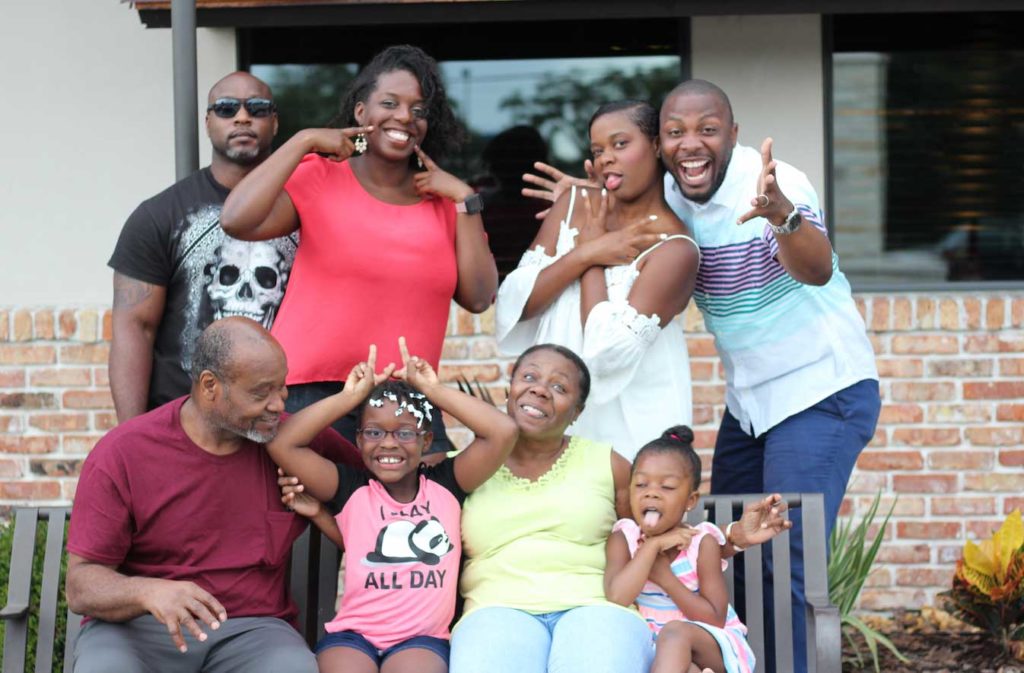SHAPING YOUR FAMILY'S CULTURE.
Recently, my wife and I decided to take our daughter with us to our favorite Thai Restaurant. The ride took longer than usual due to unexpected traffic. So we cautiously switched from lane to lane and prepared to cross the Throggs Neck Bridge. Traditionally this drive would be a mundane experience, but on this day our daughter was about to have one of the most exhilarating experiences of her toddler life.
As we drew nearer to the bridge, my wife turned all the windows down, but turned the music all the way up, and as we got to the bridge, our family began to scream hysterically! WHOA… HERE. WE. GOOOOOOO! My daughter appeared to be in shock, but with her eyes opened wide, she began to scream along with us… WHOA. I could only imagine how crazy we must have looked making all that noise. Needless to say, ever since that day, “Hysterical Screaming” has become the custom in our family whenever we drive over bridges. It’s become a part of our family’s culture!
Family Life
As it relates to family life, it’s important that we are intentional about creating an atmosphere that is aligned to our core values! The family environment is a place where we learn many of our first lessons of life. It’s usually the first lens we use when viewing and understanding how the world works. Much of what we do is based on what we’ve seen or been told. No wonder why they say… “children are the best imitators, but the worst interpreters.” Children imitate what they see, even when they can’t interpret why they’re doing it. So, what are the practices that you want your family to imitate as part of its culture? Below you will find 5 essential elements to shaping your family’s culture.
1. Norms
Norms are the shared expectations and rules that guide the behavior of your family. The rules may not be written, but they are widely accepted and understood. A norm might be “No use of phones during dinner”. What types of norms would you want to create for your family?
2. Values
Values are the moral and ethical principles traditionally upheld in the family unit. Values such as honesty, integrity, generosity, being patient, being responsible, Never giving up etc., may very will be a components of your family’s values. You must choose what values are most important to you.
3. Attitudes
Attitudes are ways of thinking about something or someone. Usually it is reflected in a family’s behavior. A family’s attitude might be that “they are not shaped by their conditions, but by their decisions.” This attitude might lead family members to view bad conditions as stepping stones vs. stumbling blocks. The attitude toward “conditions” might be that they could overcome any situation or bad condition.
4. Customs
Customs are habitual practices that happen in the form of tradition within the family. Customs play a major role in paying homage to the family’s heritage. In the Untied States, spending Thanksgiving Day with family is a custom held by many. In my family we’ve created customs and sayings that are woven into the fabric of our family’s culture. For example, my daughter knows when her mother or I say “I love you because…?” she responds “I’m your Icon of Inspiration.” We started that custom when she was three years old. What customs or mantras will you create?
5. Beliefs
Beliefs are the tenets or convictions that people hold to be true. As it pertains to families, these beliefs might be religious, cultural, societal, racial etc. Beliefs are often shared and passed down from generation to generation. What are the prevailing beliefs that is shaping your family’s culture?

